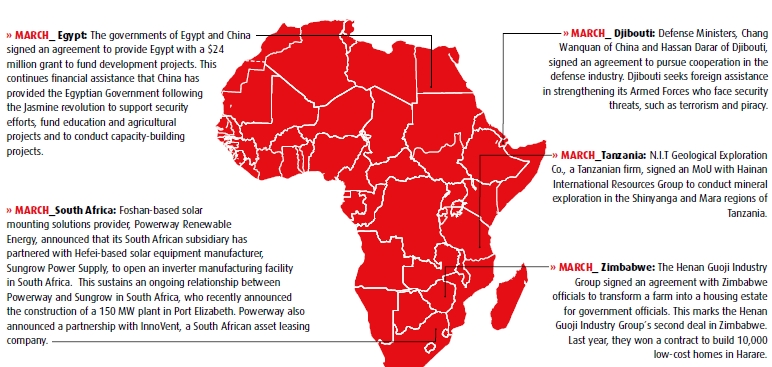Exports plunge
Retail sales grew at a multiyear low of 11.8 percent for the combined January and February period (see Chart 4). China recorded a rare $23 billion trade deficit in February, mostly due to a sharp decline in exports. The lone piece of positive economic data was the continued strength of imports, which registered a growth rate of 10.1 percent year on year to reach $137.1 billion (see Chart 5), suggesting that importers continued to build stockpiles and take advantage of low global commodities prices. Exports unexpectedly fell 18.1 percent from a year ago, following a strong 10.6 percent increase in January, to reach $114.1 billion (see Chart 6). While analysts were expecting weak results due to manufacturers’ tendency to speed shipments, the poor export results did raise some red flags for China’s economy, especially if exports continue to struggle in the months ahead.
Flexible target for 2014
The disappointing economic data came as China’s leaders wrapped up their parliamentary session, known as the National People’s Congress (NPC). At the start of the NPC, Chinese Premier Li Keqiang announced that the government was expecting the economy to expand at the rate of “around” 7.5 percent this year, on par with last year’s target. However, his word choice of “around” has led many to imply the government would still be comfortable if the country does meet its GDP growth by a few percentage points. Indeed, Li later added there is some flexibility on that target for 2014 and that the Chinese Government’s main concern was creating jobs.

Alleviating South Africa ’s Chronic Power Shortage
Seven years after the economically paralyzing ìload shedding,î or coordinated, rolling blackouts of 2008 due to supply falling behind demand, South Africa continues to be plagued by electricity supply shortages. Early this March, the state-owned Electricity Supply Commission (ESKOM), which is responsible for 95 percent of South Africaís electricity supply, began load shedding again, demonstrating that the nation has not yet committed adequate investment in improving its aging power sector. The South African power sector presents a significant opportunity for Chinese firms to intervene and provide mutual benefits for South African and Chinese firms. The limited capacity of the South African power sector is a result of a variety of factors: the sectorís monopolistic origins, outdated equipment and a limited domestic coal supply. First, in an attempt to encourage the privatization of South Africaís transitional economy, the government instituted a policy forbidding state-owned ESKOM from investing in the construction of new power plants to provide an opportunity for rival firms to compete in the sector. Unfortunately, rivals undertook minimal construction during ESKOMís ban, so by the time ESKOM was back on the market in 2004, the South African power supply was on the brink of a crisis. It takes roughly seven years to construct a power plant. Second, South Africaís many existing power plants are reaching the terminal period of their expected lifetime. To conduct maintenance and repairs on old plants, ESKOM has taken some plants offline. Third, a limited supply of suitable coal constrains power generation. Limited power supply presents one of the main obstacles to further economic growth in South Africa. With an economy focused on energy-intensive products, such as the manufacture of vehicles and mining, the South African economy will continue to suffer as a result of its poor electricity supply. However, according to the 2013 Deloitte Global Manufacturing Competitiveness Index, South Africaís economy remains strong due to its position as a key hub for the African continent and its local market attractiveness. China contributed a growing $251 billion of direct investment into Africa in 2012, and has been a key developer of the African power market. The energy crisis in South Africa expands Chinaís potential to invest in South Africa. There is no question ESKOMís power stations need to be revamped; the firmís technical capacity must be raised. In order to do so, the firm must explore different generation sources that incorporate 21st century technology. The China National Nuclear Corp. has been increasingly active on the African continent, having recently purchased a 25 percent stake in the Langer Heinrich uranium mine in Namibia, and Chinese and South African officials recently gathered to discuss mutually beneficial opportunities in developing South Africaís nuclear power sector. Chinese investment and collaboration could bring benefits to the development of the South African power sector, and the economy as a whole. Moreover, despite South Africaís extensive coal reserves, domestic supply has struggled to keep up with local demand due to prices available on the global market. Chinese investment could further open South African coal reserves and act as a catalyst for development in sustainable solutions for South Africaís power sector.
The ChinAfrica Econometer is produced by The Beijing Axis , a China-focused international advisory firm operating in four principal areas: Commodities, Capital, Procurement, and Strategy.
For more information, please contact: Barbie Co at barbieco@thebeijingaxis.com www.thebeijingaxis.com